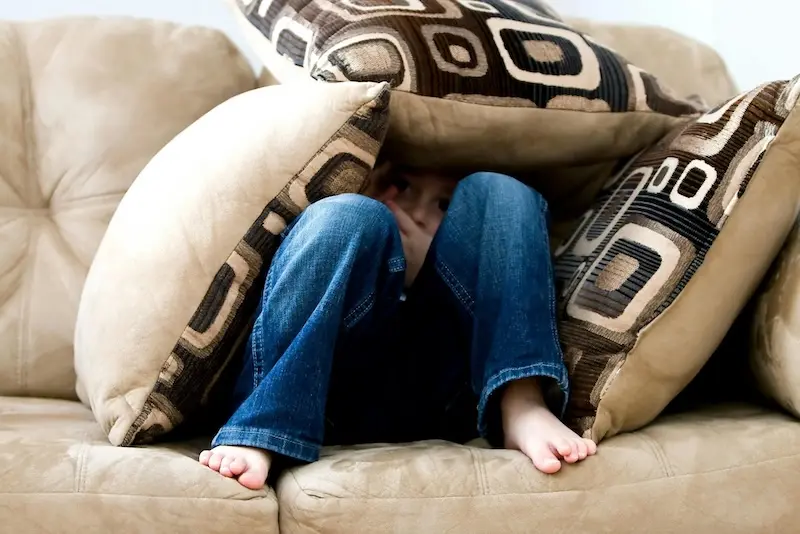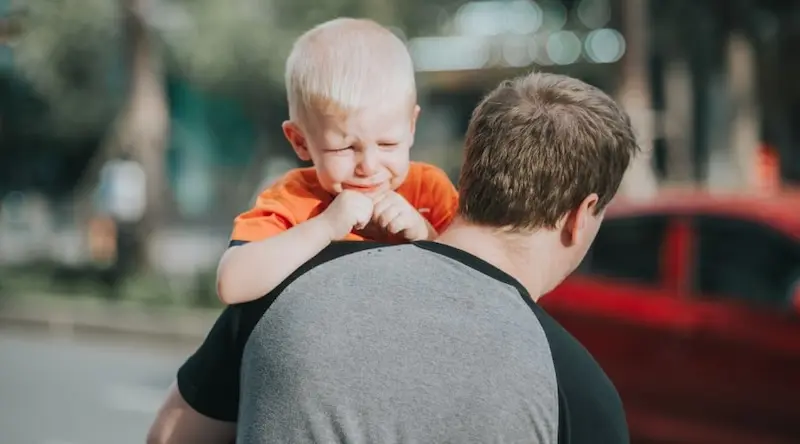settings
children
With Famly since
Hard times can have a big impact on little brains and I wanted to take a moment to outline the evidence that we have, suggest signs to watch out for, and actions you can take to make sure every child is doing okay.
By simply being observant, you can identify signs of emotional difficulties, and coach children to understand all those big emotions they can’t quite grasp yet. And by giving children the support and coping mechanisms they need, you can help them continue to prioritise their mental health well into adulthood.
But to start, let’s dig into the data.

The aftermath of lockdown and children’s wellbeing
Before the pandemic in 2020, a study showed that one in 18 children between the ages of 2 and 4 had a diagnosable mental health problem. When you add not being able to go to nursery settings or childminder’s homes, not seeing any other children and being surrounded by stressed-out caregivers, it’s no wonder children are feeling the strain too.
Just remember that it isn’t all doom and gloom – these statistics can sound scary, but you have a massive role in helping children thrive in spite of them. But before we get to the tips, we need to understand why they’re needed.
So just how big of a strain is it?
Parents have noticed a significant increase in behavioural, emotional and attentional difficulties after the COVID-19 pandemic. The lack of structure and pressure parents are under undeniably contributed to this, as children were continually pulled away from their settings and social environments. Their routines were constantly interrupted or changed, and this had a knock on effect on their emotional ability.
From regressing back in developmental stages to developing early signs of health anxiety – the pandemic is making an impact.
Vulnerable children even more at risk
For children who are already at risk for mental health difficulties, who come from low-income families or who live in difficult circumstances, hard times can be particularly difficult.
I spoke to Dolapo Adegboye, the Research Associate in a COVID study led by the Neurodevelopment Assessment Unit at Cardiff University, examining the effect the pandemic had on both vulnerable children and their families during the first UK lockdown.
A significant number of children surveyed experienced an increase in emotional difficulties – a whopping ten percent. Lockdown took its toll on children who were already susceptible to mental health difficulties or who were in challenging environments.
However, perhaps the most worrying statistic: 19% of children with no prior emotional problems before the first lockdown developed significant difficulties as a result of it. There are of course a large number of factors that contribute to this figure, such as parental hardship and insufficient resources to boost children’s emotional and social development, but social isolation and social distancing was not kind to little brains.
If you do have vulnerable children in your care, then you should be extra sensitive when picking up on their emotional wellbeing.

What type of behaviour should I be worried about?
Toddlers and young children can’t put their emotions into words as well as we are able to – they may not even understand the different emotions they’re experiencing. Keeping a close eye on their behaviour is therefore absolutely key when it comes to monitoring their mental health.
You know your children best – so the examples below are not necessarily cause for alarm. However, we’ve collected the most common symptoms of anxiety and stress-related issues that may be red flags signalling that your child may need a little extra attention, or a helping hand to deal with those big worries they don’t quite understand.
A noticeable difficulty in concentrating
Frequent sleep disruptions or irregular sleep patterns
Not eating properly or a change in eating habits
Frequently waking in the night due to nightmares
Suddenly starting to wet the bed
Easily irritated or angry, and getting out of control during outbursts
Tummy aches – abdominal problems and tummy issues are a very common way that children’s bodies display stress
Sleeping disruptions or issues with sleep
Regressing and showing behaviours they had at a younger age
Lack of engagement in activities they would normally enjoy
If your child’s behaviour has noticeably changed over the past few months, then it may be time to ask yourself why. If you’re unsure as to what toddler behaviour is normal and what isn’t, we’ve got a downloadable guide on understanding behaviour in the early years.
We’ve also got a piece with fantastic insight from Dr Mine Conkbayir, which explores trauma-informed practice. It’ll help you understand how children are feeling and what actions you should be taking to address their emotions.
The big ideas
Top tips to help children deal with anxiety
What can you, as a parent or practitioner, do to help children with their mental health? Here are some ways you can support children in acknowledging those big feelings, and help them self-regulate and control them in their own way.
- Deep belly breathing – This is a fantastic technique to help children learn to self-regulate when their emotions are getting out of control. There’s even a great video with the cookie monster that explains this perfectly. The simple act of breathing in and out deeply does absolute wonders.
- Create a safe space for them to calm down – We touched on self-regulation spaces in one of our previous posts, and this is a fantastic way to help children calm down if they are feeling anxious or overwhelmed. Try turning a corner of your space into a space with noise cancelling headphones and fluffy cushions.
- Validate children’s emotions – Helping young children understand what they’re feeling is incredibly important. Not only does this help them self-regulate when these emotions repeatedly appear, but it validates the emotion and lets the child know that you understand and support them.
- Teach them an emotional vocabulary – Once they’ve understood what they’re feeling, it’s important to name it. They’ll be able to tell you when it happens again, and explain what it is they’re feeling. Not only will you be able to support them more quickly, but they’ll start recognising the signs of that emotion and self-regulate themselves.
- Use books to develop their understanding – Stories can be a great way to help explain those big feelings to young children, as they introduce them in a digestible and accessible way. Why not try Little Meerkat’s Big Panic, or The Huge Bag of Worries?
Take care of yourself
It’s incredibly important to note that you need to be taking care of yourself too. Taking care of children’s mental health will be that much harder if you yourself aren’t making time to take care of your own.
When I chatted to Dolapo about her vulnerable children study, she noted that 44% of the parents involved experienced depressive symptoms. These families are facing various difficulties in addition to the pandemic, but this shockingly high statistic highlights the need to prioritise our own mental health as well as our children’s.
It’s okay to feel uncertain, worried and upset about the state of the world. But giving yourself time to breathe is absolutely key. Practice what you preach – if your child is becoming increasingly anxious and needs to do some deep belly breathing to calm themselves down, you should be doing that too.
Useful resources
- Every Mind Matters: An NHS resource for parents and carers.
- Keep Your Cool Toolbox: A fantastic resource from Dr Mine Conkbayir to help adults coach children through those tricky and overwhelming emotions.
- Mental Health Foundation tips: 10 tips to start you off if you’re not sure where to start. Taking care of your mental health isn’t always easy, so having a guide to start you off might be just what’s needed.
Top tips from Alphabet House
Get top tips from a setting just like yours. Hear from Alphabet House on why and how they use Famly - and why they’ve never looked back.
Read their story










